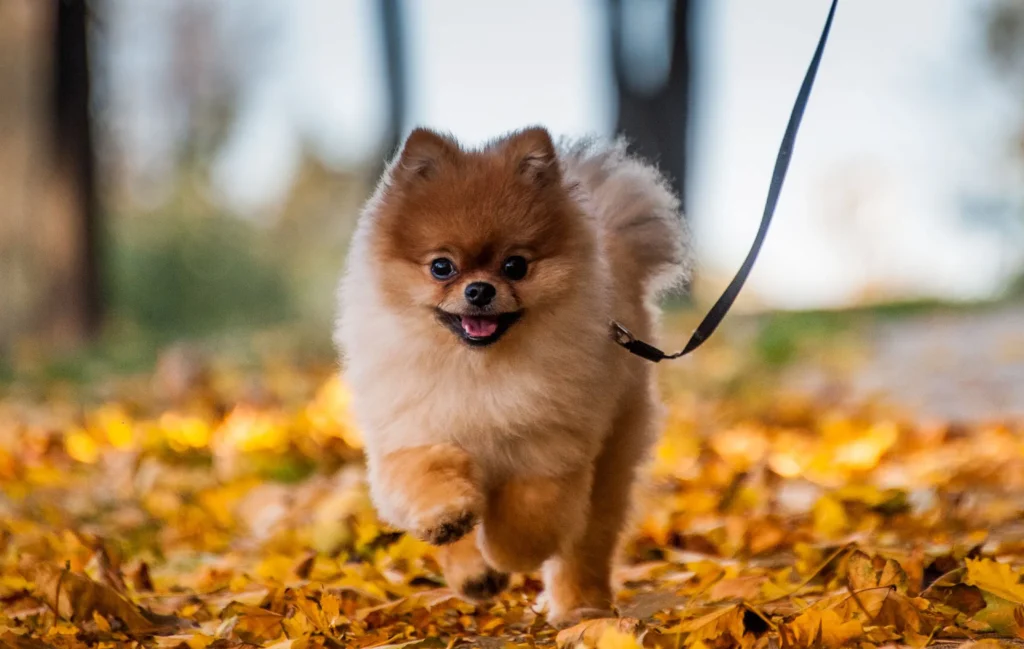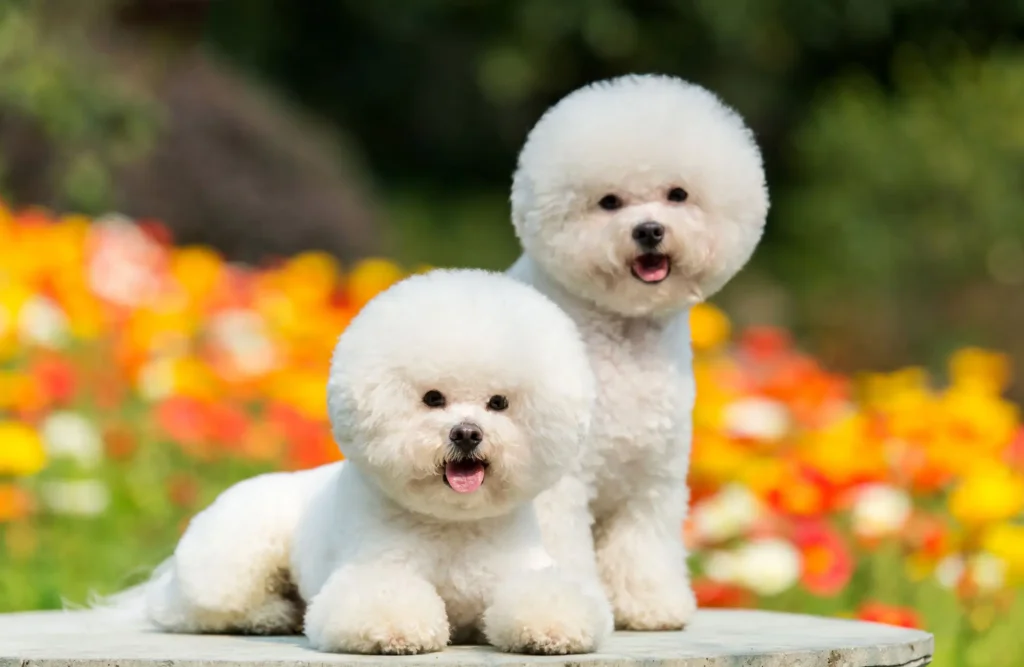Which small dog breeds are good with children?

Introduction
A. Importance of Choosing the Right Dog Breed for Families with Children
Choosing the right dog breed is very important for families with children. The right dog can be a great friend to kids. Some dogs are gentle and patient, making them good with children. Others might be too energetic or nervous around kids. Finding a dog that suits your family is crucial. A good match means a happier home for the kids and the dog.
B. Overview of Small Dog Breeds
Small dog breeds are often a great choice for families. They are easier to manage because of their size. Small dogs can live comfortably in smaller homes or apartments. They are also less likely to knock over young children by accident. Many small dog breeds are known for being friendly and affectionate. They can be just as loving and playful as larger dogs.
C. Purpose of the Article
This article aims to help families find the best small dog breeds for children. We will look at different small dog breeds that are known to be good with kids. The article will give you useful information about each breed. By the end, you will better understand which small dog breeds might be a good fit for your family. This guide aims to make choosing the right small dog easier for you and your children.

Criteria for Selecting Child-Friendly Small Dog Breeds
A. Temperament
The temperament of a dog is very important when choosing a small dog breed for children. Temperament means how a dog usually acts and feels. You’d prefer a dog that is friendly and calm. A good temperament means the dog will be gentle and patient with kids. Some small dogs are naturally more playful and affectionate, which makes them great companions for children.
B. Energy Level
Energy level is another key factor when picking a small dog breed for children. Some dogs have a lot of energy and need plenty of playtime. Others are more relaxed and don’t need as much exercise. You should choose a dog whose energy level matches your family’s lifestyle. A high-energy dog can be fun for active kids, while a lower-energy dog might be better for quieter homes.
C. Size and Strength
Even among small dog breeds, size and strength can vary. Some small dogs are very delicate and can get hurt easily. Others are more robust and can handle a bit of rough play. It’s important to find a small dog that is sturdy enough to play with kids without getting hurt. A dog that is too fragile might not be the best choice for young children.
D. Trainability
Trainability refers to how easy it is to teach a dog to follow commands and behave well. A small dog that is easy to train will be more obedient and better behaved around kids. Dogs that are quick learners can be taught not to jump on or nip at children. Good trainability means the dog can learn to follow rules, making it safer for the kids.
E. Health and Longevity
When choosing a small dog breed for children, consider the dog’s health and how long it will live. Healthy dogs with longer lifespans can be part of your family for many years. Some small dog breeds are prone to certain health problems. It’s important to choose a breed that is generally healthy and has fewer health issues. A healthy dog will be more active and happier with your children.

Top Small Dog Breeds Good with Children
A. Cavalier King Charles Spaniel
Overview of the Breed
The Cavalier King Charles Spaniel is a small and graceful breed. They have long, silky fur and expressive eyes. These dogs are friendly and affectionate, making them great companions.
Temperament and Behavior with Children
Cavaliers are recognized for their gentle and affectionate temperament. They are patient and enjoy being around kids. These dogs are also playful and enjoy games, making them perfect for families.
Care and Maintenance
Cavalier King Charles Spaniels need regular grooming because of their long fur. They should be brushed a few times a week to prevent tangles. They also need daily exercise and regular vet check-ups to stay healthy.
B. Beagle
Overview of the Breed
Beagles are small, sturdy dogs with a keen sense of smell. They have short coats and are known for their floppy ears and friendly faces. Beagles are energetic and curious.
Temperament and Behavior with Children
Beagles are very social and love to play. They are good with children because they are friendly and gentle. However, they can be a bit stubborn, so they need consistent training.
Care and Maintenance
Beagles have short fur that is easy to care for. Regular exercise is necessary to maintain their health and happiness. Beagles also enjoy mental stimulation, so puzzle toys can be great for them.
C. Pug
Overview of the Breed
Pugs are small dogs with wrinkled faces and short, smooth coats. They are famous for their affectionate and playful personalities. Pugs are great lap dogs and enjoy spending time with their families.
Temperament and Behavior with Children
Pugs are friendly and affectionate with children. They are calm and patient, making them good companions for kids. Pugs love to play but also enjoy relaxing.
Care and Maintenance
Pugs need regular brushing to keep their short coats healthy. They should be kept cool in hot weather because they can overheat easily. Regular exercise is important, but not too strenuous because of their short noses.
D. Bichon Frise
Overview of the Breed
The Bichon Frise is a small dog with a fluffy, white coat. They are cheerful and playful dogs that enjoy being around people. Bichons are celebrated for their friendly and affectionate disposition.
Temperament and Behavior with Children
Bichon Frises are great with children because they are gentle and loving. They enjoy playing and are very social. These dogs are also very patient and rarely aggressive.
Care and Maintenance
Bichon Frises need regular grooming to keep their coats looking good. They benefit from daily brushing to prevent mats and need regular exercise to stay healthy and happy.
E. Shih Tzu
Overview of the Breed
Shih Tzus are small dogs with long, flowing coats and are recognized for their friendly and outgoing personalities. Shih Tzus are great lap dogs and enjoy being pampered.
Temperament and Behavior with Children
Shih Tzus are good with children because they are gentle and affectionate. They are playful and love interacting with kids. Shih Tzus are also very patient and tolerant.
Care and Maintenance
Shih Tzus need regular grooming to keep their long coats healthy. They need daily brushing to avoid tangles. Regular exercise is also important to keep them fit and happy.
Training and Socialization Tips
A. Importance of Early Socialization
Early socialization means introducing your dog to different people, animals, and environments when they are young. This helps them feel comfortable and confident around new things. For small dog breeds, early socialization is important because it teaches them how to behave politely around children and other pets. A well-socialized dog is more likely to be friendly and calm in various situations.
B. Positive Reinforcement Training
Positive reinforcement means praising or rewarding your dog when they do something good. This could be giving them treats, toys, or lots of praise. Small dogs respond well to positive reinforcement because they enjoy pleasing their owners. It helps them learn what behaviors are good and encourages them to repeat those behaviors. Positive reinforcement training builds a strong bond between you and your dog.
C. Setting Boundaries and Rules
Setting boundaries and rules means teaching your dog what behaviors are acceptable and which ones are not. For example, you might teach them not to jump on people or to wait calmly before getting their food. Consistency is key—everyone in the family should follow the same rules. Small dogs benefit from clear rules because it helps them understand what is expected of them. It also makes them feel secure and confident in their environment.
Safety Considerations
A. Supervision around Children
Supervision means watching over and being careful when small dogs are around children. Even gentle dogs can accidentally knock over or scare a child when playing. Adults should always be nearby to make sure both the dog and the child are safe. This helps avoid accidents and ensures everyone stays happy.
B. Teaching Children to Interact with Dogs Safely
Teaching means showing children how to behave around dogs so they don’t get hurt or scare the dog. Children should learn to approach dogs calmly and gently, without pulling their ears or tail. They should also know when to give a dog space if it looks uncomfortable. This makes sure interactions between kids and dogs are enjoyable for both.
C. Recognizing Signs of Stress or Discomfort in Dogs
Recognizing means understanding when a dog feels nervous or unhappy. Signs of stress can include ears pinned back, growling, or trying to move away. If a dog shows these signs, it means they may need a break from interaction. Recognizing these signs helps people know when to give a dog space and how to keep everyone safe and comfortable.
Conclusion
A. Recap of Important Points
Recap means summarizing the most important things we talked about. Choosing a small dog breed for your family involves considering their temperament, energy level, and how well they get along with children. Breeds like Cavalier King Charles Spaniels, Beagles, Pugs, Bichon Frises, and Shih Tzus are known to be good with kids because they are friendly and gentle.
B. Final Recommendations for Families
Recommendations mean advising on what families should do next. If you decide to get a small dog, spend time with different breeds to see which one feels right for your family. Consider adopting a shelter or rescue organization to give a dog a loving home. Remember, small dogs need regular exercise, grooming, and vet check-ups to stay healthy and happy.
C. Encouragement to Research and Choose the Best Breed for Their Lifestyle
Encouragement means giving a push to do something positive. Research means looking up information about different dog breeds to find the best fit for your family’s lifestyle. Each breed has its own personality and needs, so take your time to choose wisely. Ask questions from breeders or visit dog shows to learn more. Finding the right small dog breed can bring joy and companionship to your family for many years.



